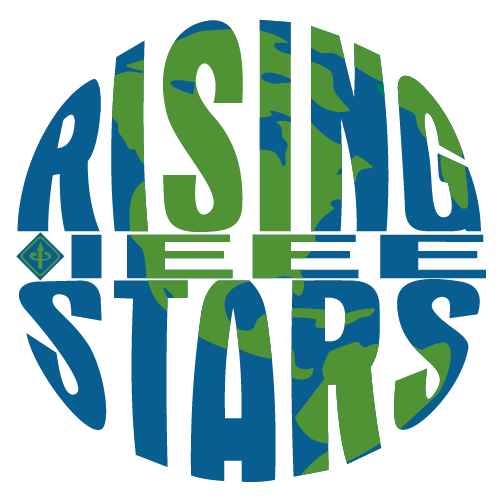Friday, January 02, 2015
| 3:00pm – 6:00pm | Registration |
| 6:00pm – 8:00pm | Linking Today to Tomorrow
Opening Address – Tom Coughlin, Mike Andrews |
Saturday, January 03, 2015
| 8:00am – 9:00am | Breakfast/ Registration | ||
| 9:00am – 10:00am | Keynote Address
Our home planet is an interconnected system of geophysical, chemical and biological processes. Observing and understanding this complex system of systems is the goal of the NASA Earth Science program. Being able to understand how our home planet is changing and to predict how it will change into the future is one of the most important problems facing humanity today. Addressing this big, global challenge requires people skilled in a very broad range of disciplines from the scientists and engineers to the wide range of support services and to the creative communicators, who can translate complex science and engineering concepts into actionable information for decision makers and the general public. – Steve Hipskind |
||
| 10:00am – 11:00am |
|
||
| 11:00am – 12:00pm |
|
||
| 12:00pm – 1:30pm | Jobs of the Future
Technology keeps evolving at warp speed and challenges the way we work and the way we think. In this continuously changing landscape, how can we ensure that we are professionally relevant as an engineer when we graduate and during the course of our career? Nathalie Gosset, a sought after keynote speaker on matters related to the Future, will describe multiple emerging market segments where a new engineer can thrive and pursue successful careers. She will explain how to catch these new waves and how to attract employers. Ms. Gosset is frequently invited by companies, universities, and state agencies to present her insights on the future job market and on ways to accelerate STEM education in the United States. She believes that each person is responsiblefor maintaining their own professional relevance. In her talk she provides multiple approaches to keep a fresh career profile.Ms. Gossset is the author of the book Hidden Jobs, How to Find Them. – Nathalie Gosset |
||
| 1:30pm – 2:15pm |
|
||
| 2:15pm – 3:00pm |
|
||
| 3:00pm – 3:30pm | Afternoon Break | ||
| 3:30pm – 5:00pm | Engineering Excitement: Creative, Agile, Passionate
The heart of engineering is to harness the creativity of a truly inventive person with strong fundamental knowledge of how real things work. With the rise of maker culture and the growing prominence — almost respectability — of geekdom, more people than ever are being exposed to the learning by doing approach of the best engineers throughout history. Only engineers have the background and spark to innovate and bring to life the technologies of the future, from 3D-printed airplane parts to biologically inspired medical devices to sustainable “green” cement for construction in the developing world. There has never been a better time to be a creative engineer, whatever engineering means to you and your organization. In this session we will hear from professional engineers who are inspiring the world around them with their projects. – Dr. Pramod Abichandani, Whurley |
||
| 5:30pm – 8:00pm | Hackathon
Arduino demos, the LED shades, Art Bots, etc.! – Tanaya Hurst |
||
Sunday, January 04, 2015
| 8:00am – 9:00am | Breakfast/Registration |
| 9:00am – 10:30am | The Next Big Thing
The Internet of Things is the current industry hype. Estimates run into the billions of devices and trillions of dollars. In fact, it will generate a lot of products, and a lot of engineering jobs. Fortunes will be won and lost. It will also generate some interesting new problems. The speaker is an expert on some aspects of this market, and will give a similar talk at ICCE aweek later. Confronting Energy Challenges in Our Global Future Engineers serve a vital role in confronting global energy challenges. Over the next 30 years, young engineers, especially, will be needed to create energy solutions that address climate change, world population growth, and foster economic development. This is no small problem. Technological innovation is needed to keep our lights on and keep homes warm (or cool) with minimal environmental impact. Renewable energy generation is part of the solution, as is advanced power electronics, demand management, energy storage, carbon capture and storage, and hybrid power systems. Yet a focus on technology alone is insufficient for success. Engineers that view and understand technology design within the context of dynamic social, economic, and environmental factors will be best suited to address the challenges ahead. In this talk, Dr. Johnson will discuss his work in designing energy technologies and energy systems to confront energy challenges in industrialized economies and emerging markets. He will describe trends and provide cutting-edge examples of research in micro-grids, building energy management, smart devices, distributed generation, critical infrastructure resiliency, and various energy technologies such as solar PV,concentrating solar power, and thermal and electrochemical energy storage devices. Dr. Johnson will indicate opportunities for early career engineers in these and other areas, and emphasize the importance of bridging academic research with commercialized application. His US-based and international projects will demonstrate how engineers can pursue a variety of career paths locally and globally. – Pat Griffis, Nate Johnson, Joe Decuir |
| 11:00am – 11:30am | Your Outbound Challenge
Closing Ceremonies/Awards – Michael Andrews |
| 11:30pm | Depart |
| 11:30pm – 5:00pm | KÀ show by Cirque du Soleil Backstage Engineering Tour |
| 6:00pm – 8:00pm | 2015 Storage Visions Reception |
